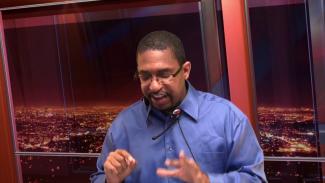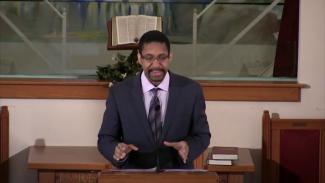Topic: The Bible
To see more broadcasts select show names, a year, or all video media.This quarter we focus on the book of Galatians. What can the life of Paul, starting out as Saul of Tarsus, tell us about the context of Galatians? What were the historical circumstances under which the book was written? What happened in the early church between the Jewish and Gentile converts to Christianity? How can this help us to understand the themes of the book of Galatians?
As we conclude our study on the books of 1st and 2nd Peter, what are the major themes brought out in these epistles? What does Peter have to say about persecution, the suffering of Christ, the Second Coming, and the Judgment? What do these things mean for Christian faith and practice? Are Christians saved by grace to continue in sin? How did Peter view the importance of Scripture?
Part 4 to the presentation on the Bible, Pastor Mirra discusses manuscript evidence making a compelling case for belief in the Bible. How does the Bible's reliability compare with that of other ancient manuscripts like the writings of Socrates, Plato, and other historical figures? Does the record show we can trust the Bible? What does all this mean for God's presence in our lives today?
Pastor Michael Mirra speaks on the trust worthiness of the Bible as he explores the writings and arguments of those who say the Bible can't be trusted. He also begins to expound on the manuscript evidence and history associated with the Bible to provide us with solid reasons for faith. Does the historical record show we can trust the Bible? Did Jesus really exist? Did Jesus really do the things told to us in the Bible? Did Moses write the first 5 books?
This week Pastor Michael Mirra focuses on attacks against the Word of God and the inclination of man to resist and not hear or listen to the Word of God. There were times in history when the Bible was not always available to the common person. But was the Bible meant to be read and available to everyone? Were the dark ages because of the Bible, or did the Bible bring us out of the dark ages? Why are there so many who twist the word of God? How do we know that Moses really wrote the first five books? What was so special about Moses?
Elder John Spellman preaches on the Elisha and the healing of the waters of Jericho that were cursed for many years using a cruse of salt. What special message might this hold for us today? Are we like the living water or the corrupted water that makes the land barren?












